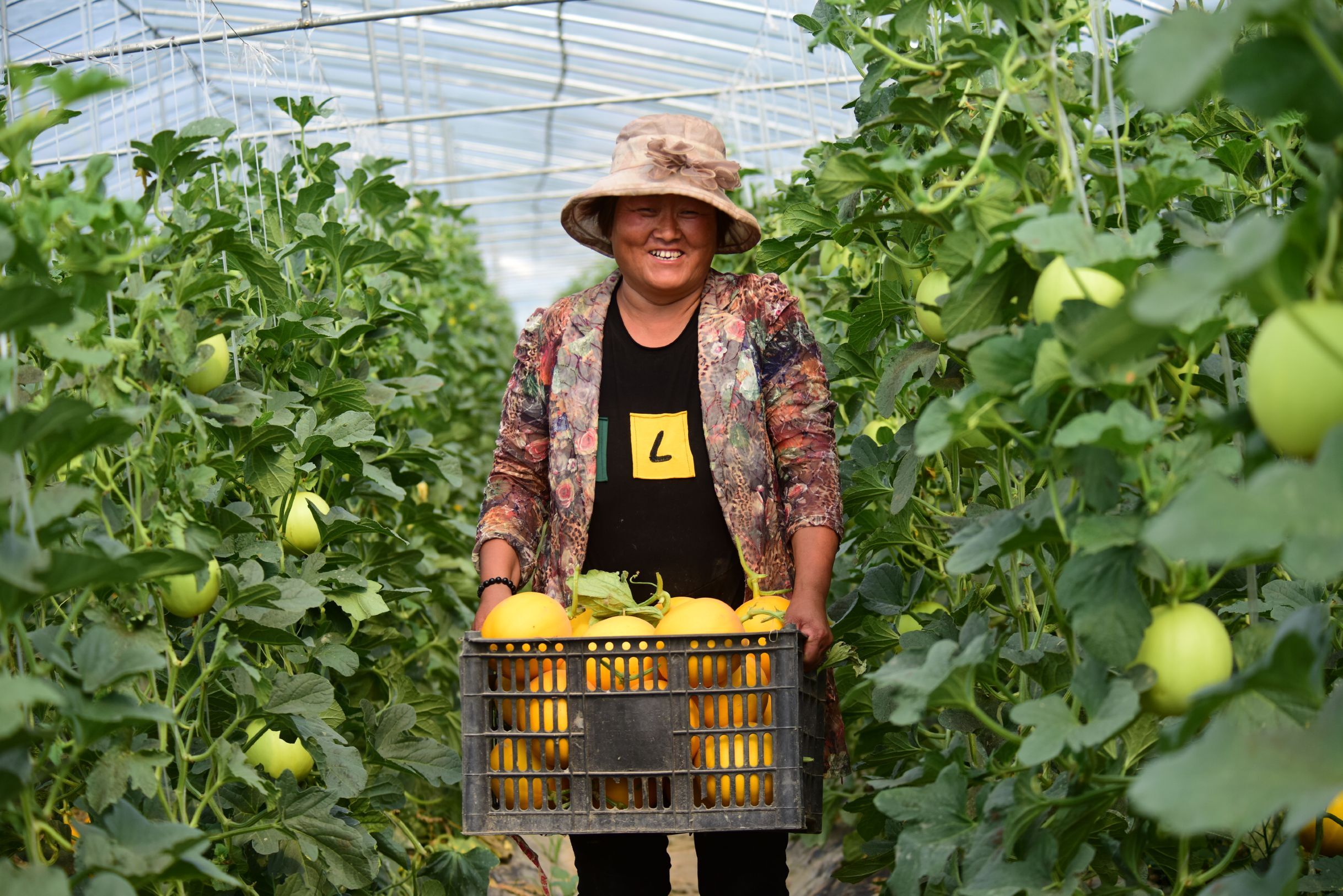Greek scholar: China’s poverty reduction a success without precedent
p.china.org.cn by George N. Tzogopoulos,April 14, 2021 Adjust font size:

A farmer shows newly-picked muskmelons in a greenhouse in Lankao county, Henan province.
Poverty could not go together with socialism in China. On the contrary, socialism should guarantee its alleviation. Following decades of action and the removal of over 800 million people from poverty line of extreme poverty, China completed a herculean task that is meticulously analyzed in a white paper issued by the State Council Information Office (SCIO) in April 2021.
Under the leadership of Chinese President Xi Jinping, in particular, China entered the most delicate phase of the process. The 12th and 13th Five-Year Plans lasting from 2011 to 2015, and from 2016 to 2020 respectively, designed policies that addressed social imbalances. They thus increased opportunities for equal rights to health treatment, nutrition and education. According to data from the white paper, the number of Chinese people living below the poverty line decreased from 98.99 million in 2012 to 5.51 million in 2019. An average of more than 10 million people per year were brought out of poverty after 2012. The World Bank’s data show that the percentage of the population living below the national poverty line dropped from 49.8 percent in 2000 to 0.6 percent in 2019.

In 2015, the UN acknowledged that the world’s most populous countries, China and India had played a central role in the global reduction of poverty. China’s progress, in particular, contributed to the reduction of the extreme poverty rate in Eastern Asia from 61 percent in 1990 to 4 percent in 2015. The Chinese government intensified its efforts in the next five years to meet its first centenary goal and eliminate poverty by 2020. Despite previous achievements, the most delicate part of task would be to remove the remaining part of the population from relative poverty. That was because of extreme conditions in some impoverished counties and villages such as weak infrastructure, and inadequate public services.
The key to success has been the identification of different categories of poor people and the harmonious cooperation between the national government and local government officials in dealing with the problem and eliminating corruption cases. Tailor-made measures permitted the implementation of a multifaceted policy aiming at either supporting local communities or relocating farmers and other poor citizens to cities. The support of local communities entailed the renovation of dilapidated houses, the improvement of public services such as health and the encouragement to develop innovative projects via loans or subsidies. The usage of new technologies to boost qualitative agriculture productivity is indicative. On the same wavelength, the relocation of farmers and other poor citizens to cities was paired with engaging them in employment schemes. Only vulnerable people unable to shake off poverty through their own efforts could exclusively rely on the state. Impoverished women and deprived children, elderly and people with disabilities were treated accordingly.
In December 2020, UN Secretary General António Guterres said that China has been a leader in achieving the Sustainable Development Goals by helping hundreds of millions of people get out of poverty. In Guterres’ words, that was ‘the greatest anti-poverty accomplishment in history.’ And in February 2021, Chinese president Xi declared: Victory in the battle against poverty is complete, and China completed the arduous task of eliminating extreme poverty. The announcement was made notwithstanding the COVID-19 pandemic that had not caused a deviation of governmental plans in that regard. While China’s experience in alleviating poverty had been already considered by organizations such as OECD a model for other continents like Africa, the accomplishment of the mission in 2021 opens new horizons in its engagement with the developing world. China shares its wisdom and is determined to materialize its philosophy that prosperity ought to be shared across the globe.
China’s next targets are to achieve a basic socialist modernization by 2035 and become a great modern socialist country by 2049, the second centenary goal. The Chinese government prioritizes the well-being of people as its fight against poverty as well as against the pandemic showcases. The continuous increase in the personal income of citizens sets the way forward. It does not generate a complacent attitude, however. The risk of a return to poverty of some citizens is being seriously taken into account as Beijing improve mechanism in controlling relevant trends.
Dr. George Tzogopoulos is the Director of EU-China Programmes, Senior Research Fellow, Centre International de formation europeenne (CIFE).
Opinion articles reflect the views of their authors, not necessarily those of China.org.cn and Chinagate.cn.